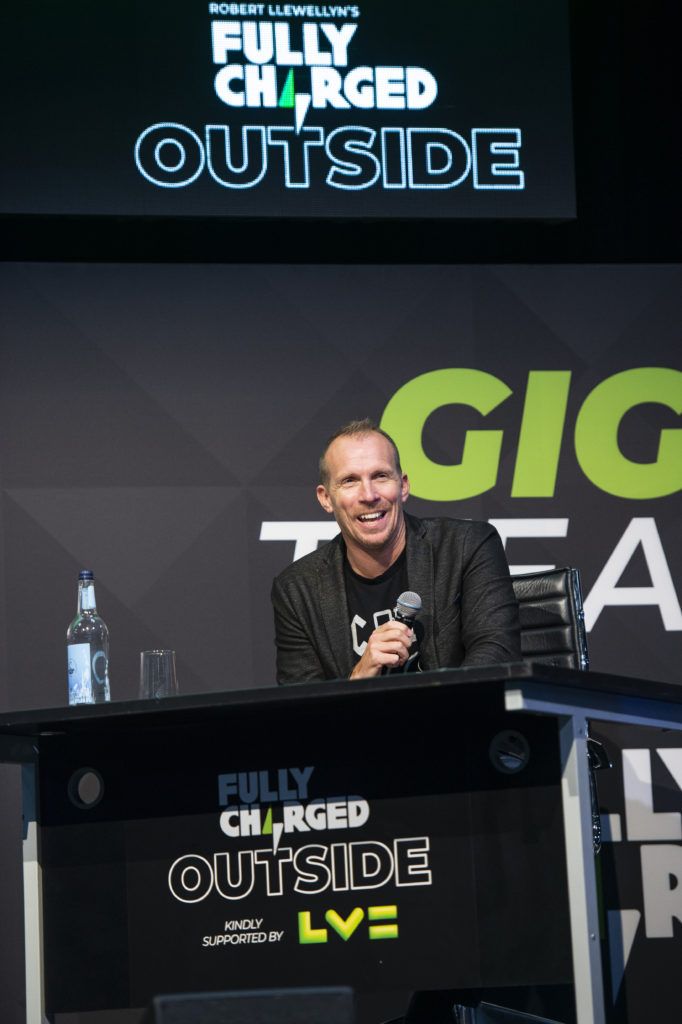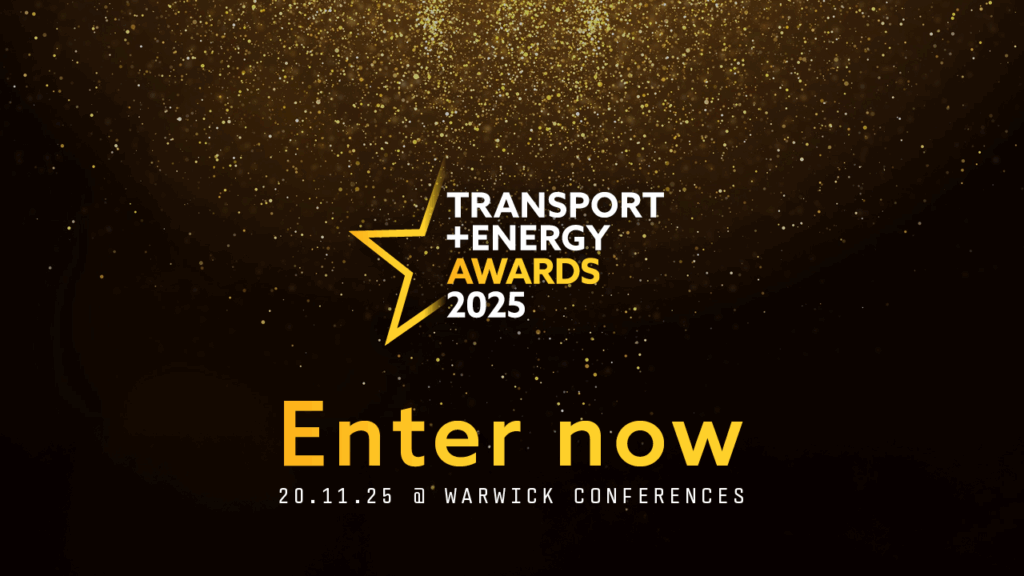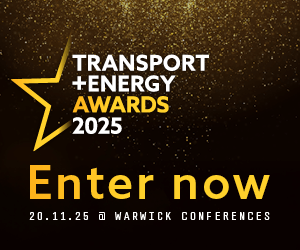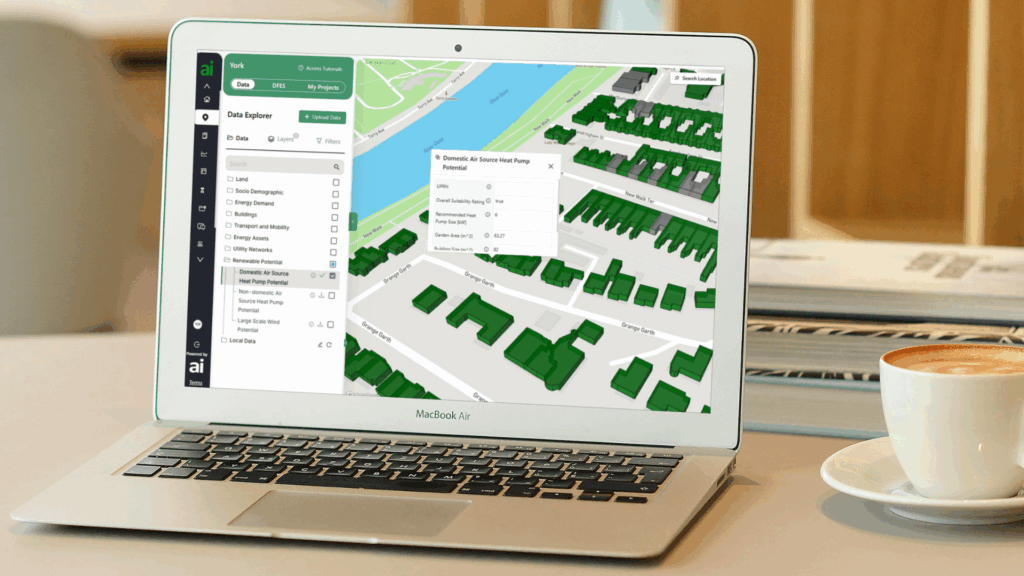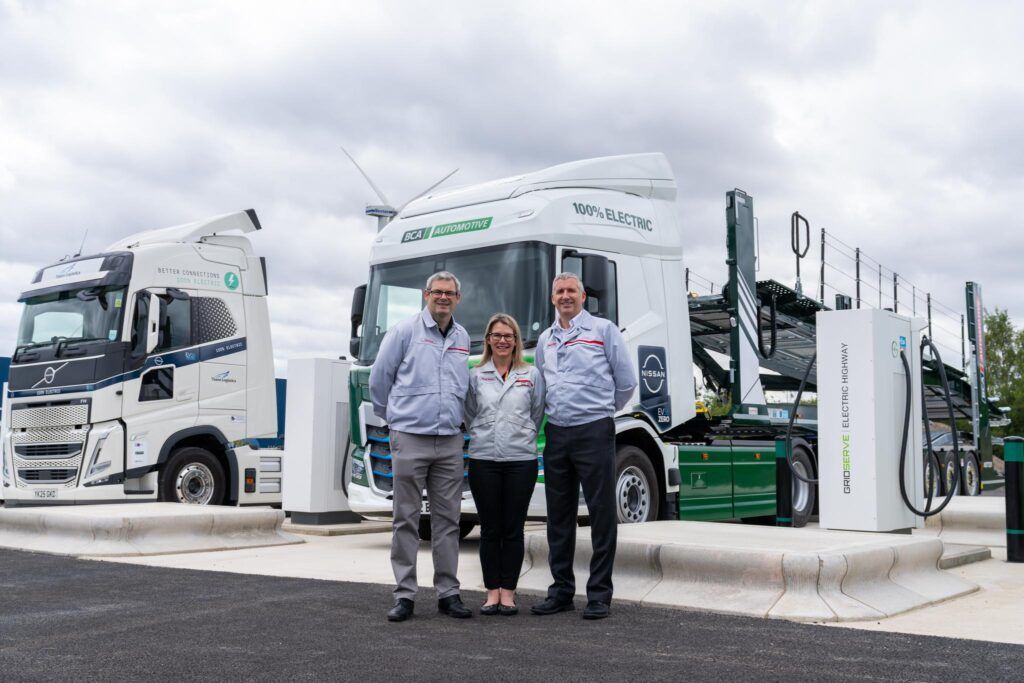With less than 48 hours to go until the doors to this year’s Fully Charged Live South open, Transport + Energy caught up with CEO Dan Caesar to find out what visitors can expect to see whilst also getting the lowdown on challenges and opportunities facing the sector.
Q. Do you think that most barriers have now been overcome to allow for the widespread adoption of electric vehicles? What barriers, if any, remain?
‘’Yes, I do think most of the barriers have been overcome. I think there are two issues that probably remain. One of which is affordability. It’s much, much less of an issue than the Daily Express would have you believe. But it’s still something of an issue. And, you know, it’s more about the manufacturers not being willing to make cheaper, affordable cars, because they’re struggling to make profit out of the mid-range, premium cars. So, they’ve headed for the hills of premium SUV, which is going to be incredibly competitive.
‘’And they’ve abandoned the lower ground for the moment at least. And a bit like Tesla brought some of the mainstream OEMs to the market, with certain models, I think the Chinese brands are going to bring the established OEMs in with the cheaper more affordable cars. But for now, it’s going to be the Chinese companies that make that happen. We’re unveiling the BYD dolphin at Fully Charged South on Friday, and we think it is quite a symbolic moment.
‘’The other barrier is misinformation. Robert (Robert Llewellyn, Founder of Fully Charged) is often quoted as saying the barriers now are psychological, not technological. I just met someone in the street, and we were talking about electric vehicles. And she very innocently couldn’t help but say, ‘we haven’t got the infrastructure’. So that message has really, really landed. And I said, well, I’ve been driving electric for seven years, I’ve done over 200,000 miles, and I’m fine. And everyone else out there seems to be fine. So, wherever you’re getting the information, and organisations like Daily Express and others have firmly planted that seed of doubt in people’s minds – so even though she knew nothing on the topic – she couldn’t help but sort of blurt out what she said. And I had to kind of smile and say, well, how do we tackle this, unfortunately, it is repetition. And it’s a long-drawn-out process.’’
Q. What did you make of the Government recently reaffirming its commitment to stick to the 2030 phase out of internal combustion engines and that it will be progressing with its proposed Zero Emission Vehicle (ZEV) mandate from 2024?
‘’I was pleased to see that they reaffirmed their commitment. There were lots of whispers going round that a couple of naughty car makers were lobbying very, very hard to get it diluted. Some people in Germany have successfully lobbied to water down a similar directive in the EU, although it is a 2035 mandate. So, I’m probably relieved more than anything else. Do the government have a finger on the pulse of what’s going on with electric vehicles? Not really, I still think they should be talking to experts like us or people like Roger Atkins and others to get ahead of the curve. It still feels to me like they’re 2,3,4 or five years behind our understanding, and if they weren’t, we’d have a battery factory by now. Not having a giga factory or giga factories is an Achilles heel for UK automotive ambitions.’’
Q. What challenges and opportunities are brought about by the transport and energy sectors working together and how can this be achieved?
‘’I came from the energy industry, and I got really interested in electric cars around the time that Tesla was making the Model S, but they were also doing energy storage.
‘’It was the two things together that got me interested, but I appreciate I’m a bit weird. I mean, I think from my perspective, the convergence of energy and transport is not widely understood outside of people like you and I, as the opportunities are huge.
‘’What we find, typically, although not always, is that someone buys an electric car, they then install a charger – if they’re fortunate enough to have a driveway – and they then look at their energy tariff. That completely opens their world to all the new technologies – could be solar and batteries, could be electrification of heat, could be smart, thermostats, installation, etc – this journey is typical. And so, we have a once in a generation opportunity to really educate people.’’
Q. Much has been made of the Government stating that 300,000 EV charge points need to be rolled out by 2030. What are your thoughts on this?
‘’I think we will end up with more charging infrastructure than we need in the UK. I think the way it’s worked out, it has been a bit of a patchwork quilt, hasn’t it? As I say, the problems within the UK charging infrastructure are much exaggerated. Many of us drive electric with no problem at all, but obviously that one bad experience you have could be quite scarring. So, I do know that the UK charging industry is coming together now, at long last, which is fantastic. I do think this will have a positive impact.
‘’But if you take people who can’t have a driveway as an example, you know, you don’t fill up your car with petrol at home. This belief that you have to plug in at home or you can’t have an EV, or you have to plug in a home every night is unfortunately, an understandable misconception. At the end of the day, you might charge a car once or twice a week. And in that circumstance, you don’t necessarily need to charge at home, there are lots of places you can charge.’’
Q. Charging provision can differ depending on what part of the country you are in. How can the industry ensure that it is rolled out fairly and in a way which bridges the north-south divide? Will there be a focus on this at Fully Charged North?
‘’There are huge geographical differences in EV rollout. It’s absolutely no coincidence that we’ve got a show in the home counties, which is obviously an affluent part of the UK. Next year, we’ve got a show in London as well, which is, in terms of people’s disposable income, it’s very mixed, but it’s a large catchment area. And the other show we’ve got is in a part of North Yorkshire, which is probably quite affluent.
‘’Getting EVs into terraced houses in Altrincham or Burton upon Trent is going to be more challenging, and it’s going to take a longer period. So, what we see is, quite often, that the early adopters, or the people with a bit more money, who started to invest in these technologies send signals to companies that consumers do want electric vehicles, and then over time, people with a little bit less disposable income, cheaper cars become available. And so, you know, certainly from our point of view, we’re sensitive to that, we see the show as very much about helping people save energy, save money, not just about buying expensive technology. So yeah, there will be a bit more of a flavour of that with the North show, but equally we do not want to patronise people. We’re here for you when you’re ready to make that switch, which for some people could be tomorrow and for other people could be in five years’ time.’’
Q. What can visitors to both the south and north shows expect to see and do?
‘’The South show is going to be the biggest we’ve ever done. It’s great to have exhibitors there and it wouldn’t be possible without them, but the reality is we’ve put on loads of different stuff like the Giga Theatre and Mega Theatre full of talks. You know, we have a huge test drive programme with lots of different EVs this year. We have a business day as well. We have a commercial vehicle zone, a Kids Zone, we have a two-wheel test track this year, we’ve got lots of cars that have never been seen before and our Electric Launchpad plus lots of second hand vehicles on the electric alley.
‘’For us the Home Energy advice team area is important and that’s a very popular part of the show. For the first time this year, we’ve got a zero-carbon kitchen as well which is basically plant based food being cooked off the power of an IONIQ 5, so that should be quite fun. And probably the biggest other new thing we’re doing this year is electric fireside chats with the likes of Deborah Meaden from Dragon’s Den.’’
Q. Fully Charged recently hit 1m subscribers and continues to go from strength to strength. What has been key to its success?
‘’What’s been key is that we’ve been ourselves and have remained very independent. We speak our minds, more than we should, perhaps sometimes, but I think people respect that sort of integrity. And let’s be honest, we’ve been ambitious. I guess I was the person who came into the company to kind of turn it into a business as such, but we want it to maintain its robustness and keep the heart of it alive. And I think largely we’ve done that. The events have been hugely additive, people love to see the stuff on YouTube and then they love to come and see and meet their sort of stars on screen.’’
Q. Why have you decided to rebrand to ‘Everything Electric’ from next year?
‘’There’s an old Ronseal advert you’d be familiar with in the UK, where the saying is ‘it does what it says on the tin’. For us, we would say we’re from Fully Charged and some people who don’t know us were looking at as us with a blank face and asked well, what does that mean? So, we felt Everything Electric was a better calling card. It will enable us to get more of the home technology in and perhaps more some of the micro mobility stuff as well as the cars and vehicles. So, from our perspective, that’s been really well received. We think it will help to bring in that early mainstream who maybe don’t watch Fully Charged yet. And of course, should.”
Q. What do you think the EV situation will look like in 2030?
‘’We’ve always said we think in the UK that most people will be buying electric vehicles, irrespective of the mandate by 2030. I think the network affects will really, really kick in. I think there will be the odd person who at one minute to midnight on December 31, 2029, will just buy a diesel to stick it to the man. But we think by that point, electric vehicles will be selling like hotcakes and pretty much everyone will want to move to them, as we’ve seen in Norway. They were at the same level we’re at now, which is 16% of EV sales about five or six years ago. So, if you extrapolate it forward, we think it will be a similar situation by then.’’
Transport + Energy is the trade media partner for Fully Charged BUSINESS at both events and will be participating with a stand on the business day of each event.
More details and applications for tickets here:
FCL South – https://uk.fullycharged.live/south/fully-charged-business
FCL North – https://uk.fullycharged.live/north/fully-charged-business
Image courtesy of Fully Charged.




